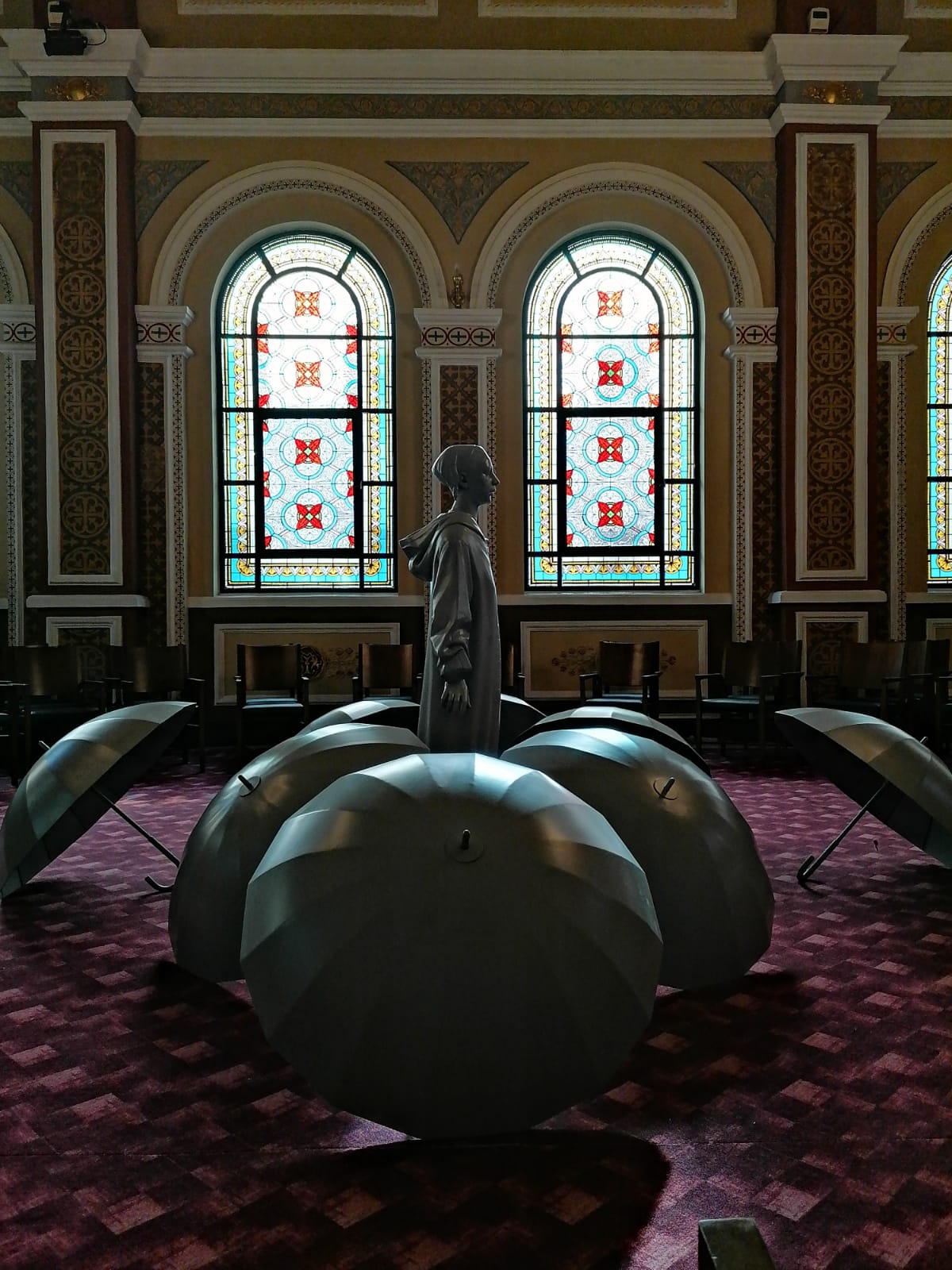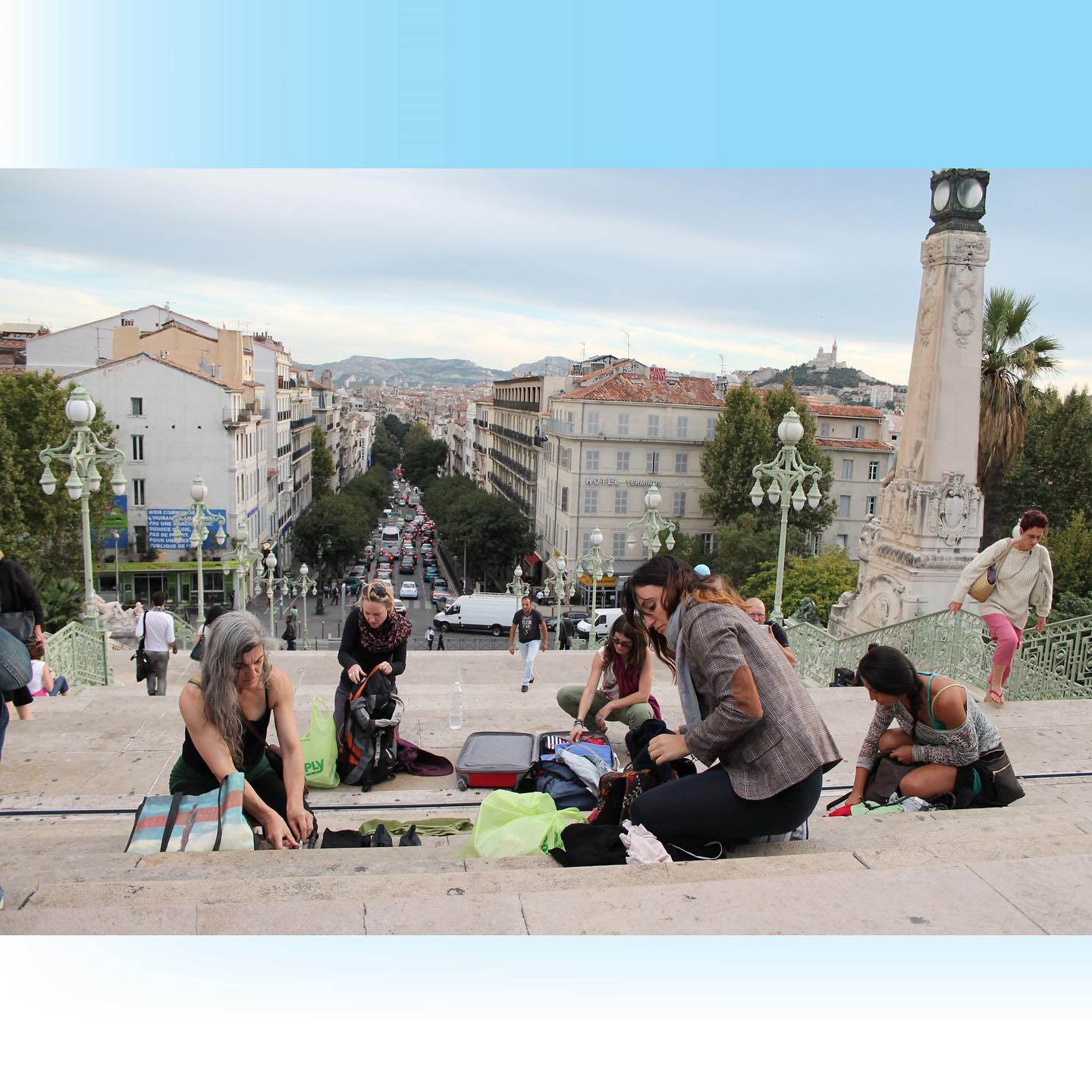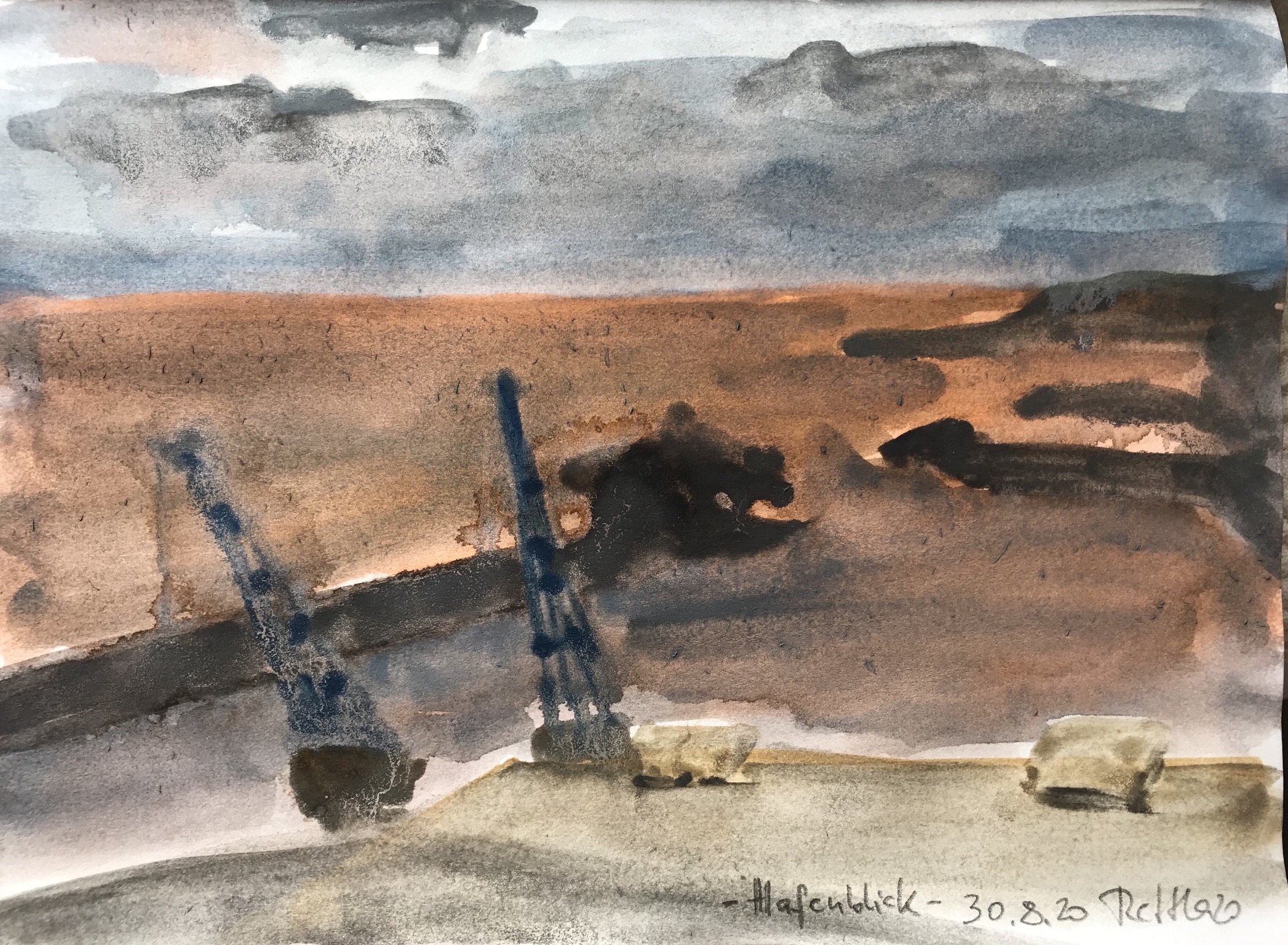Walking a City I Have Never Visited
- Julie Peters
- Covid19 , Covid19 General , News
- 0 Comments

Artist in residence in times of COVID-19: Learn how the artist NOT in residence in Istanbul – Wilhelm Scherübl – is dealing with the COVID-19 restrictions and see how you can participate into a virtual art production.
Wilhelm Scherübl, architect and visual artist based in Vienna was about to attend a three-month artist’s residency in Istanbul, supported and organized by the Austrian Ministry for Arts, Culture, Civil Service and Sport.
Due to COVID-19 restrictions and the impossibility to travel, the organization Diyalog (in charge of welcoming and assisting the residents) has thought of a way to make the artist’s project still feasible in Istanbul.
Under the title Walking a City I Have Never Seen Wilhelm Scherübl will discover the quaters – the Mahalle – of Istanbul with your help. You are invited to prepare some sound files and send them to the artist. He will use your impressions to create a visualization of these quarters.
The project Walking a City I Have Never Seen will take place in the frame of the Mahalla Festival 2020, a remote festival to overcome self-isolation, demobilization and paralysis.
You can participate in the realization of this project and become part of the art work by sending him the sound file – a description of a location familiar to your daily life in Istanbul (in your quarter, your mahalle, your mahalla). The artist will visualize your personal description from Austria by using tools he finds online and publish the results within the Mahalla Festival platform.
The first videos and results of the project will be available on the Mahalla Festival Website together with the work in progress by the end of May. So watch out the progress here.
Illustration of the Project “Recollect Space” by Wilhelm Scherübl, 2015.




A non-physical city tour
Wilhelm Scherübl’s work deals with movement in space and the resulting perception of architectural components and recurring urban sequences. Everyday spatial sequences, places and their special characteristics are anchored in our memory, consciously and unconsciously connections are made.
The niche that protects us from the rain, the shop to buy food, the café as a meeting place with a friend or the square as a playground for a child. We establish a connection to our architectural environment and assign personal meaning to certain places.
Especially through the quarantine and the restrictions imposed, it becomes even more concrete what one misses, what one has certain references to or what one wishes for. Wilhelm Scherübl was not allowed to travel to Istanbul for his residency and therefore asks himself: How can I visit the city and exciting places without physically visiting them?
These are the questions the project is supposed to deal with. It is about people describing their everyday paths or favourite places from their memories. For the listener (Wilhelm), abstract self-interpretations of the narrated situations will arise.
The final results will be transcribed through pictures and short films that visualize digital reconstructions of such places of memory. Those works will be presented to the narrators and a general public in the frame of the Mahalla Festival and later on in a physical exhibition. A combination of audio files and three-dimensional abstract reconstructions will be created, which on the one hand shows the artist’s interpretation, but on the other hand gives the viewer the possibility to create his/her own mental image.
A verbal city tour by residents of Istanbul, which is visually interpreted by Wilhelm Scherübl.
Illustration of the Project “Recollect Space” by Wilhelm Scherübl, 2015.



For the “tour guides”
The artist will use audio files in which participants will describe places, sceneries, rooms, places, situations etc. in Istanbul, that have a special meaning for them or with which they associate something special.
The objective is to describe which emotions are associated with the place which is remembered. No matter if it is a small detail, a person etc. There are no specifications.
Participants will try to describe them as they remember them. Audio files should last between 1-2 min (it can also be shorter or longer). Participants should not think too much about the content so that it stays authentic. An easy description is recommended.
Please do not send any photos or visual data.
If participants have more than one location, it is possible to send more than one description. Please record the audio files separately.
Later on when physical traveling will be back to normal, the artist will come to Istanbul, meet the participants in person and visit with them the physical location, they had describe him before.
The project Walking a City I have never seen will be launched mid of May. For those who wish to be part of an artistic project during COVID-19, whether artists or not, can register and receive more information by mailing info@diyalog-der.eu until May 12.
Wilhelm Scherübl is an architect and visual artist based in Vienna, Austria. The focus of his work is to relate the agenda of architecture with other forms of art and expand his expertise into the fields of media- and visual culture. His field of questioning mainly pays attention and depicts public social behavior and daily behavior just as political issues. By using various media to transport his observances, he aims to offer a critical view on current issues. He works closely with the groups TAB an architectural thinktank and Janusch a visual collective, both based in Vienna.
In 2015, Wilhelm Scherübl did a similar project entitled “Recollect Space“, refering to the memories of refugees who are not able to return to places they used to inhabit. It invites to think the connection of place, memory and narration, challenging individual imaginations of heard descriptions.
Supported by

Mahalla Festival 2020
To cope with the COVID-19 pandemic the Mahalla Festival 2020 took place as a remote festival to overcome self-isolation, demobilization and paralysis.
The Mahalla Festival 2020 was implementing remote tools to keep intercultural communication and creative expression alive even in times of physical distance and to help to cope not only with the pandemic but also to create new forms of interactive communication and understanding between different communities in the world.




